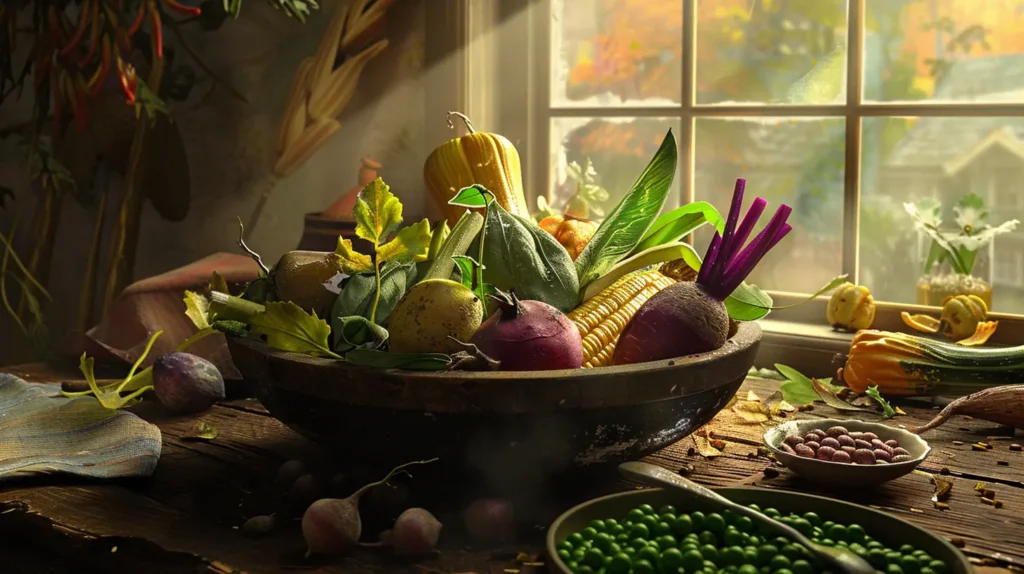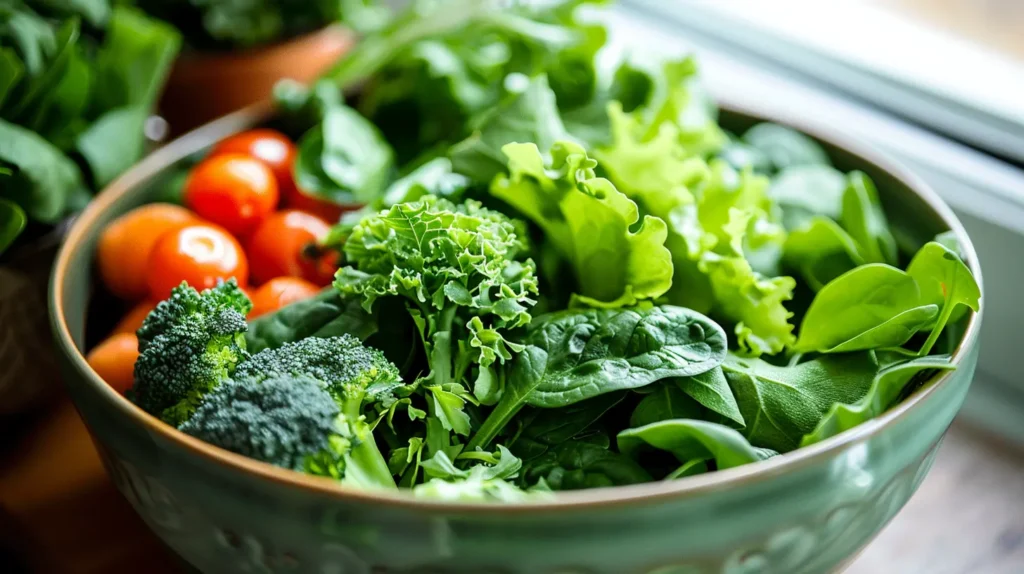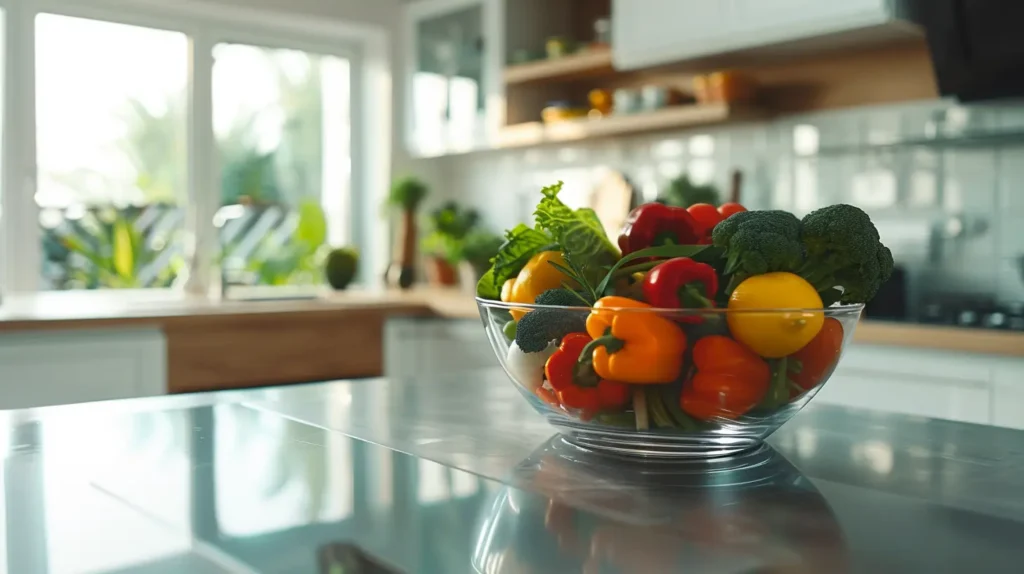What are the Best Vegetables to avoid for Weight Loss? Is it even possible for vegetables to be bad for losing weight?
When it comes to weight loss, many people turn to vegetables as a go-to solution. After all, vegetables are packed with nutrients and are often low in calories, making them an ideal choice for those looking to shed some pounds.
However, not all vegetables are created equal when it comes to weight loss. In fact, some vegetables may actually hinder your progress due to their high calorie, carbohydrate, or sugar content.
In this article, explore best vegetables to avoid for weight loss and provide practical tips for making informed choices that support your weight loss journey. Get ready to discover the surprising truth about some of your favorite veggies!
What Makes a Vegetable Bad for Weight Loss?
While vegetables are generally considered healthy and beneficial for weight loss, certain factors can make some vegetables less ideal for those trying to shed pounds. Understanding these factors can help you make informed choices and avoid vegetables that may hinder your weight loss progress.
High Calorie Density
One of the main factors that can make a vegetable less suitable for weight loss is its calorie density. Some vegetables, such as avocados and sweet potatoes, are higher in calories compared to other vegetables. While these vegetables still provide valuable nutrients, consuming them in large quantities can lead to a calorie surplus, making it more difficult to achieve a calorie deficit necessary for weight loss.
High Carbohydrate Content
Vegetables that are high in carbohydrates can also be problematic for weight loss. Starchy vegetables like potatoes, corn, and peas contain more carbohydrates than non-starchy vegetables. When consumed in excess, these carbohydrates can contribute to weight gain, especially if they are not balanced with other nutrients and physical activity.
High Sugar Content
Some vegetables, such as carrots and beets, have a higher natural sugar content compared to other vegetables. While the sugar in these vegetables is natural and accompanied by fiber and other nutrients, consuming them in large amounts can still impact blood sugar levels and potentially hinder weight loss efforts, particularly for individuals with insulin resistance or diabetes.
Preparation Methods
The way vegetables are prepared can also influence their impact on weight loss. Vegetables that are fried, breaded, or covered in high-calorie sauces or dressings can significantly increase their calorie content, making them less conducive to weight loss. For example, deep-fried potatoes or vegetables drenched in creamy dressings can negate the potential weight loss benefits of the vegetables themselves.
Portion Sizes
Even vegetables that are generally considered healthy can hinder weight loss if consumed in excessive portions. While it’s important to include a variety of vegetables in your diet, it’s equally crucial to be mindful of portion sizes. Consuming large amounts of any vegetable, even low-calorie options, can lead to a calorie surplus and slow down weight loss progress.
Best Vegetables to avoid for Weight Loss

Now that we have established the characteristics that can make certain vegetables less ideal for weight loss, here are some specific vegetables to avoid for weight loss.
Potatoes
Potatoes, particularly when fried or mashed with added fats like butter or cream, can be high in calories and carbohydrates. A cup of mashed potatoes contains around 249 calories. Consuming potatoes in large quantities may contribute to weight gain, especially for individuals with diabetes.
Corn
Corn is a starchy vegetable with a high carbohydrate content, which may lead to weight gain if consumed in excess . Corn-based products like tortilla chips and popcorn can also be high in calories and fat.
Peas
Peas have a higher carbohydrate and calorie content compared to other vegetables. They also contain complex sugars called raffinose, which can be difficult to digest and may cause bloating.
Winter Squash
Winter squash varieties, such as butternut squash and acorn squash, have more carbohydrates and calories than other vegetables. A cup of butternut squash contains about 80 calories and 21 grams of carbs.
Beets
Beets are a root vegetable that is relatively high in carbohydrates and calories compared to other vegetables. A cup of cooked beets contains around 60 calories and 14 grams of carbs.
Canned Vegetables
Canned vegetables often contain added sodium and preservatives, which can contribute to water retention and bloating . Opt for fresh or frozen vegetables instead.
Alternative Low-Calorie Vegetables

Even though there are vegetables to avoid for weight loss, it doesn’t mean that all vegetables are bad for losing weight!
If you’re looking to expand your vegetable intake beyond the usual suspects, there are plenty of low-calorie options that can add variety and nutrition to your diet. These alternative vegetables are packed with fiber, vitamins, and minerals while being low in calories, making them excellent choices for weight loss.
Leafy Greens
- Spinach: This nutrient-dense leafy green is incredibly low in calories, with just 23 calories per 100 grams . Spinach is rich in vitamins A and K, as well as folate and iron. Add it to salads, smoothies, or sauté it as a side dish.
- Kale: Another nutrient powerhouse, kale has only 33 calories per 100 grams . It’s high in vitamins A, C, and K, as well as antioxidants. Enjoy kale in salads, soups, or as crispy baked chips.
- Lettuce: With just 14 calories per 100 grams , lettuce is an excellent base for salads. Opt for darker varieties like romaine or red leaf lettuce for more nutrients.
Cruciferous Vegetables
- Broccoli: This versatile vegetable has only 34 calories per 100 grams. Broccoli is high in fiber, vitamin C, and various antioxidants. Enjoy it raw with dip, steamed, or roasted.
- Cauliflower: Cauliflower has just 25 calories per 100 grams . It’s a great low-carb substitute for rice or mashed potatoes, and can be used in a variety of dishes from stir-fries to pizza crust.
- Brussels Sprouts: These mini cabbages have 43 calories per 100 grams . They’re high in fiber, vitamin C, and vitamin K. Roast them with a bit of olive oil and seasoning for a delicious side dish.
Other Low-Calorie Options
- Cucumbers: Cucumbers are over 90% water, making them ultra-hydrating and low in calories with just 16 calories per cup. They’re great for snacking, adding to salads, or as a refreshing addition to water.
- Zucchini: This summer squash has only 17 calories per 100 grams . Zucchini can be spiralized into noodles, grilled, or added to baked goods for a nutrient boost.
- Bell Peppers: With just 30 calories per 100 grams , bell peppers add a sweet crunch to salads and stir-fries. They’re also high in vitamin C and various antioxidants.
Conclusion
When it comes to weight loss, not all vegetables are created equal. While most vegetables are nutrient-dense and low in calories, some can be surprisingly high in carbohydrates, starches, or sugars, which may hinder your weight loss progress. Vegetables like potatoes, corn, peas, winter squash, and beets are examples of those that should be consumed in moderation when trying to shed pounds.
However, this doesn’t mean you should avoid these vegetables altogether. The key is to be mindful of portion sizes and preparation methods. Incorporating a wide variety of vegetables, focusing on low-calorie options like leafy greens, cruciferous vegetables, and other nutrient-dense choices can help you create a balanced diet that supports your weight loss goals.
So, take action today and start incorporating more of these weight loss-friendly vegetables into your diet. Your body will thank you for nourishing it with the nutrients it needs to thrive while supporting your weight loss efforts. Remember, every small step towards a healthier lifestyle is a step in the right direction, so start today and watch your progress flourish!
Today we talked about vegetables to avoid for weight loss. Here are some other articles that you might like:
What are the Best Fruits to avoid for Weight Loss?
What are the Best Cereal for Weight Loss?
The Best Period Comfort Food: Feel Better Instantly
What are the Best Fruits for Muscle Gain?
What are the Best Vegetables to avoid for Weight Loss?
ADHD Comfort Food: Try These Now!


